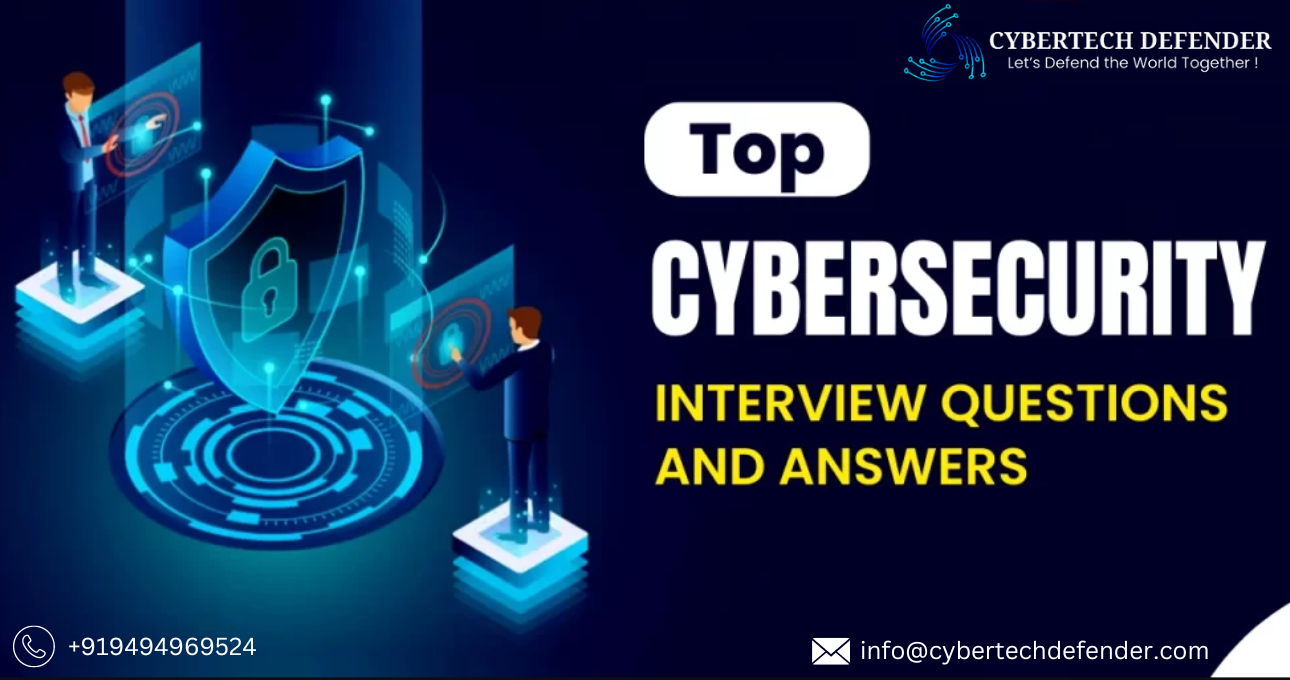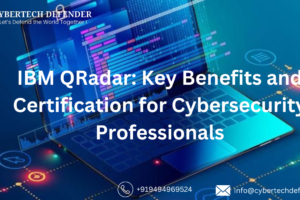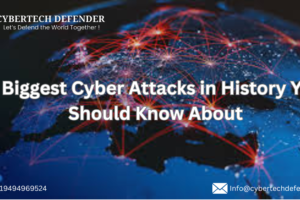
Top Cybersecurity Interview Questions and Answers
Preparing for a cybersecurity interview can be a daunting task. You need to showcase your technical skills, problem-solving abilities, and passion for the field.
We’re here to help you ace your next interview!
In this comprehensive guide, we’ll break down common cybersecurity interview questions, providing insights and sample answers tailored to different experience levels – from beginners to seasoned professionals.
These questions and answers will give you the confidence and knowledge you need to impress potential employers.
Cybersecurity Interview Questions for Beginners
1. What is cybersecurity, and why is it important?
Answer: Cybersecurity involves using various techniques and technologies to protect computer systems, networks, and the sensitive information they store from unauthorized access, theft, damage, or disruption. It’s crucial in today’s digital world as it helps individuals, businesses, and governments prevent financial losses, identity theft, operational disruptions, and even threats to national security.
2. Can you explain the difference between a virus and a worm?
Answer: A virus requires a host program or user action to spread, while a worm can replicate and spread independently. Viruses typically attach themselves to files or programs, whereas worms exploit vulnerabilities in networks or operating systems.
3. What is phishing, and how can you avoid it?
Answer: Phishing is a social engineering attack where cybercriminals trick victims into revealing sensitive information (like passwords or credit card numbers) by posing as a trustworthy entity. To avoid phishing, be cautious of unsolicited emails or messages, verify the sender’s identity, and never click on suspicious links or attachments.
4. What is the CIA triad, and why is it important in cybersecurity?
Answer: The CIA triad stands for Confidentiality, Integrity, and Availability. It represents the three core principles of information security:
- Confidentiality: Ensuring that data is only accessed by authorized individuals
- Integrity: Protecting data from unauthorized modification or deletion
- Availability: Ensuring that data and systems are accessible to authorized users when needed
5. What are some common types of cyberattacks?
Answer: Some common cyberattacks include:
- Malware (viruses, worms, trojans, ransomware)
- Phishing attacks
- Denial-of-service (DoS) and distributed denial-of-service (DDoS) attacks
- Man-in-the-middle (MitM) attacks
- SQL injection attacks
Cybersecurity Interview Questions for Intermediate-Level
1. Can you explain the difference between symmetric and asymmetric encryption?
Answer: Symmetric encryption uses the same key for both encryption and decryption, while asymmetric encryption uses a pair of keys: a public key for encryption and a private key for decryption.
2. What is a firewall, and how does it work?
Answer: A firewall is a network security device that monitors and controls incoming and outgoing network traffic based on predetermined security rules. It acts as a barrier between a trusted internal network and an untrusted external network (like the Internet).
3. What is the difference between vulnerability assessment and penetration testing?
Answer: A vulnerability assessment identifies potential weaknesses in a system, while penetration testing attempts to exploit those vulnerabilities to gain unauthorized access.
4. Can you describe the steps involved in incident response?
Answer: The incident response process typically involves the following steps:
- Preparation
- Identification
- Containment
- Eradication
- Recovery
- Lessons learned
5. What is the importance of security awareness training for employees?
Answer: Security awareness training helps employees understand cybersecurity risks and best practices, reducing the likelihood of falling victim to social engineering attacks like phishing or inadvertently introducing malware into the organization’s network.
Cybersecurity Interview Questions for Advanced Level
1. Can you explain the concept of zero trust security?
Answer: Zero trust security is a framework that assumes no user or device should be trusted by default, even if they are within the organization’s network. It emphasizes continuous verification and authentication to ensure secure access to resources.
2. What are some challenges associated with cloud security?
Answer: Cloud security challenges include:
- Data breaches and leaks
- Misconfiguration and inadequate access controls
- Shared responsibility model between cloud provider and customer
- Loss of control over data location and movement
3. How would you design a security architecture for a large enterprise?
Answer: Designing a security architecture for a large enterprise involves considering various factors, including:
- Identifying critical assets and data
- Understanding potential threats and vulnerabilities
- Implementing layered security controls (e.g., firewalls, intrusion detection systems, encryption)
- Establishing incident response and disaster recovery plans
- Conducting regular security assessments and audits
4. What are some emerging trends in cybersecurity?
Answer: Emerging trends in cybersecurity include:
- Artificial intelligence (AI) and machine learning (ML) for threat detection and response
- The rise of ransomware and other sophisticated malware
- Increased focus on cloud security and securing remote work environments
- The growing importance of cybersecurity awareness and training
5. How do you stay up-to-date with the latest cybersecurity threats and technologies?
Answer: I’m a firm believer in continuous learning, especially in the fast-paced world of cybersecurity. Here are some specific ways I stay informed:
- Industry Publications and Blogs
- Security Conferences and Webinars
- Online Courses and Certifications
- Cybersecurity Communities and Forums
By combining these different approaches, I’m able to stay ahead of the curve and ensure my skills remain relevant in the ever-evolving field of cybersecurity.
Build Cybersecurity Skills and Confidence with CyberTech Defender
Remember, these questions give you a starting point to prepare for your cybersecurity interview.
The best way to prepare and build confidence is to build your skills. If you are an expert in a field, you will automatically be confident in answering its questions.
At CyberTech Defender, we’re passionate about empowering individuals with the skills they need to thrive in the cybersecurity field.
Our courses are designed to upgrade your skill set and prepare you by providing hands-on experience and real-world insights to help you build a strong foundation for a successful career.
Visit our website to explore our range of cybersecurity courses.



